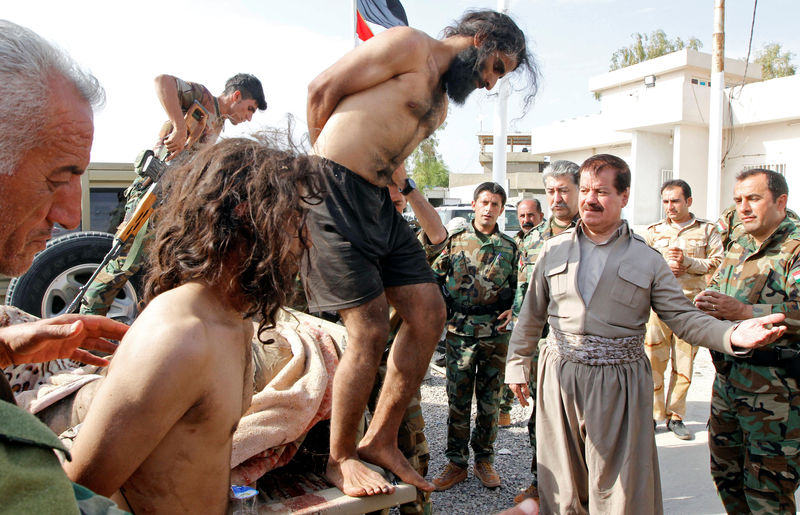By Maher Chmaytelli
BAGHDAD (Reuters) - Hundreds of suspected Islamic State militants surrendered last week to Kurdish authorities after the jihadist group was driven out of its last stronghold in northern Iraq, a Kurdish security official said on Tuesday.
The suspects were part of a group of men who fled toward Kurdish-held lines when Iraqi government forces captured the Islamic State base in Hawija, the official told Reuters, asking not to be identified.
The report of the Sunni Muslim militants fleeing, rather than fighting to the finish as in previous battles, suggested their morale may be crumbling, according to Hisham al-Hashimi, a Baghdad-based expert on Islamic State affairs.
"They no longer seem to believe in the cause," Hashimi, who met some of those who surrendered in the Dibis camp near Kirkuk, told Reuters.
He said they had fled to the Kurdish-held region to avoid summary executions at the hands of vengeful Sunni Arab tribesmen and Iranian-trained and armed Shi'ite Muslim paramilitaries who assisted the Iraqi army's offensive on Hawija.
Islamic State leader Abu Bakr al-Baghdadi released an audio recording two weeks ago that indicated he was alive, after several reports he had been killed. He urged his followers to keep up the fight despite setbacks in Iraq and Syria.
"Approximately 1,000 men surrendered over the last week. Not all, however, are terrorists," said the security official in Erbil, the northern Iraqi base of the autonomous Kurdistan Regional Government.
They handed themselves in to Kurdish Peshmerga forces near the Kurdish-held oil city of Kirkuk, east of Hawija, he said. "It's fair to say hundreds probably are ISIS (Islamic State) members, but that will be clear after the debriefs."
FINAL DEFEAT IN SIGHT?
The town of Hawija and surrounding areas fell on Oct. 5 in an offensive by U.S.-backed Iraqi government Shi'ite paramilitary groups known as Popular Mobilisation, as well as Sunni tribal combatants.
Islamic State's last territory in Iraq is now a stretch skirting the western border with Syria, including the border town of al-Qaim.
Iraqi Prime Minister Haider al-Abadi said on Tuesday this last piece of territory would be recaptured before the end of the year, marking the final defeat of the militants in Iraq.
The militants also hold areas on the Syrian side of the border, but are retreating there in the face of two sets of hostile forces - a U.S.-backed, Kurdish-led coalition and Syrian government troops with foreign Shi'ite militias backed by Iran and Russia.

Islamic State's cross-border "caliphate" effectively collapsed in July when U.S.-backed Iraqi forces captured Mosul, the group's de facto capital in Iraq, in a nine-month battle.